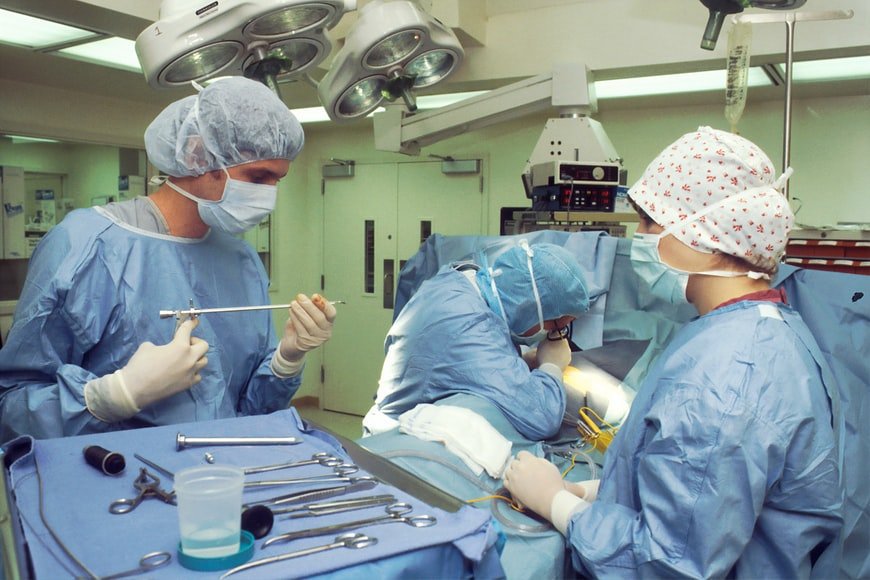Perioperative Nurse: How to Become & What to Expect from a Career in the OR

Whether we’re talking about elective or urgent procedures, there’s no denying that surgery is a crucial part of healthcare that transforms people’s lives. Such a complex health service requires the attention and dedication of an interdisciplinary team – with surgeons, anesthesiologists, and nurses working side by side tirelessly to improve the well-being of patients.
If you are curious to learn more about the vital role Perioperative Nurses play in this equation, you have clicked on the right article. We will discuss the ins and outs of this nursing career path. If questions like What exactly is a Perioperative RN? How do you become one? What does a perioperative nurse do? How much money do they make? have crossed your mind, then wonder no more.
Let’s get right into it.
What Is a Perioperative Nurse?
A Perioperative Nurse is a Registered Nurse specializing in providing pre-, during, and post-operative surgical care. Their role extends both in and out of the operating room. Not only do perioperative nurses assist surgeons during procedures, they also guide, educate, and comfort patient before and after surgery.
The world of surgery is often uncertain and riddled with fear and worry. Perioperative Nurses are present at every step of the process putting their professionalism toward alleviating a patient’s concerns and ensuring they receive quality care at all stages of the procedure.

How to Become a Perioperative Nurse?
If you’re interested in a nursing career revolving around surgical care, the first step is to have a clear picture of the path that will take you there. Becoming a Perioperative Nurse requires a combination of schooling and additional training. Let’s take it one step at a time.
Step 1. Enroll in an accredited nursing program
It won’t come as a surprise that you first have to earn your nursing degree to become a Perioperative Nurse. You can either pursue an Associate’s Degree in Nursing or a Bachelor’s Degree in Nursing. ADN is still the minimum education requirement for a career in perioperative nursing. Still, many employers ask potential candidates to have a BSN degree before embarking on this journey.
An Associate’s Degree in Nursing takes around two years to complete, and at the end of the program, you are eligible to sit for the NCLEX-RN exam. A Bachelor’s Degree in Nursing requires a lengthier commitment – around four years. Nightingale College’s BSN program is designed to help you achieve nursing excellence in as few as 32 months. It follows a blended format combining online didactic instruction with on-the-ground supervised training.
There are multiple perks to enrolling in a BSN program. According to a study from the American Association of Colleges of Nursing (AACN), almost half of the employers require new hires to have a Bachelor’s Degree in Nursing, while 88% of hiring managers strongly prefer baccalaureate-prepared nurses. In addition to the competitive advantage a BSN gives you, it will also prepare you more extensively for pursuing this exciting and challenging profession.
ADN-trained nurses can advance their degree through a bridge RN-to-BSN program. These programs, including the one offered by Nightingale College, can often be completed online, allowing students to keep working while furthering their education.
Step 2: Pass the NCLEX-RN
Regardless of whether you took the ADN or the BSN path before you can fully embrace a nursing career, there’s one more step to fulfill: passing the NCLEX-RN. The NCLEX is a comprehensive exam testing your knowledge and preparedness to become a Registered Nurse. With that out of the way, one thing remains – job hunting for the perfect nursing position.
Step 3: Start working
As a fresh nursing graduate with a well-deserved RN credential under your belt, you can now start applying for perioperative nursing jobs. Make sure your nursing resume is up-to-date and highlights your best skills. Next, thoroughly prepare for nursing interviews. Once you ace this part, you start working in the surgical department, gathering experience, expanding your expertise, and providing quality care.
Step 4: Consider certification
Certification is a voluntary step for Registered Nurses, but it comes with many benefits. Increased recognition from peers and supervisors, more confidence in your skills and knowledge, and enhanced competitiveness in the job market are just some of the advantages of getting certified.
Perioperative Nurses can opt for one of the following certification options:
- CNOR for perioperative nurses offered by the Competency & Credentialing Institute (CCI). Obtaining this credential requires at least 2,400 hours and two years of experience in the field and completing the CNOR test.
- Certified Perioperative Clinical Nurse Specialist (CNS-CP) credential, available through the same credentialing body – CCI. The eligibility criteria for this certification include 2,400 hours and two years of fieldwork and a graduate degree and experience as a clinical nurse specialist.

What Are the Duties of a Perioperative Nurse?
The job description of a Perioperative Nurse ensures there will never be a dull moment in your shift. Some of the primary duties and responsibilities you can expect on a day to day basis include:
- Assisting patients with completing paperwork before the procedure.
- Answering any questions patients may have about the operation, walking them through the surgery process in a straightforward manner, and calming their anxieties regarding the upcoming procedure
- Maintaining a clean and sterile environment in the operating room by sterilizing surgical equipment and handling other sanitation concerns
- During the surgery, the Perioperative Nurse assists the surgeon by selecting and passing instruments and supplies as instructed
- Monitoring the patient’s condition during and after the surgery
- Assessing patient’s needs post-op and directing nursing care once the client is out of the OR
- Providing education to patients about best practices for recovery. This can include guidance on keeping wounds clean or pain management techniques.
Perioperative Nurse Subspecialties
Perioperative Nursing includes more subspecialties that you could potentially choose to specialize in. For example, Scrub Nurses or Operating Room Nurses work exclusively in the operating room. Circulating Nurses provide care to patients only before and after surgery. PACU Nurses work in the post-anesthesia care unit caring for patients as they awaken and stabilize from anesthesia.
There is also an array of surgical subspecialties you can pursue based on your interests. For example, you can work as a Perioperative Nurse in neurosurgery, cardiac surgery, general surgery, plastic surgery, oncology, pediatrics, or many other niches.
How Much Does a Perioperative Nurse Make?
Perioperative RNs are some of the highest-paid nurses. According to data from ZipRecruiter, the average pay for Perioperative Nurses is $91,629 annually. However, salaries tend to range between $62,500 and $124,500. Several factors can influence the size of the RN’s paycheck. Location, employer, education, certification, and years of experience are some of the most prominent.

Ready to Scrub In?
Preoperative nursing checks all the boxes, whether you’re looking for professional development, financial rewards, a challenging career right at the heart of nursing care, or strong job security. All that’s left is for you to take the first step in that direction. That means enrolling in an accredited, high-quality nursing program that will put you on the path to achieving your dreams.
Nightingale College’s BSN program and our online RN-to-BSN program will prepare you to succeed in your nursing career and advance the quality of healthcare delivery while you’re at it. Are you ready to scrub in and start your career in the surgical department?

